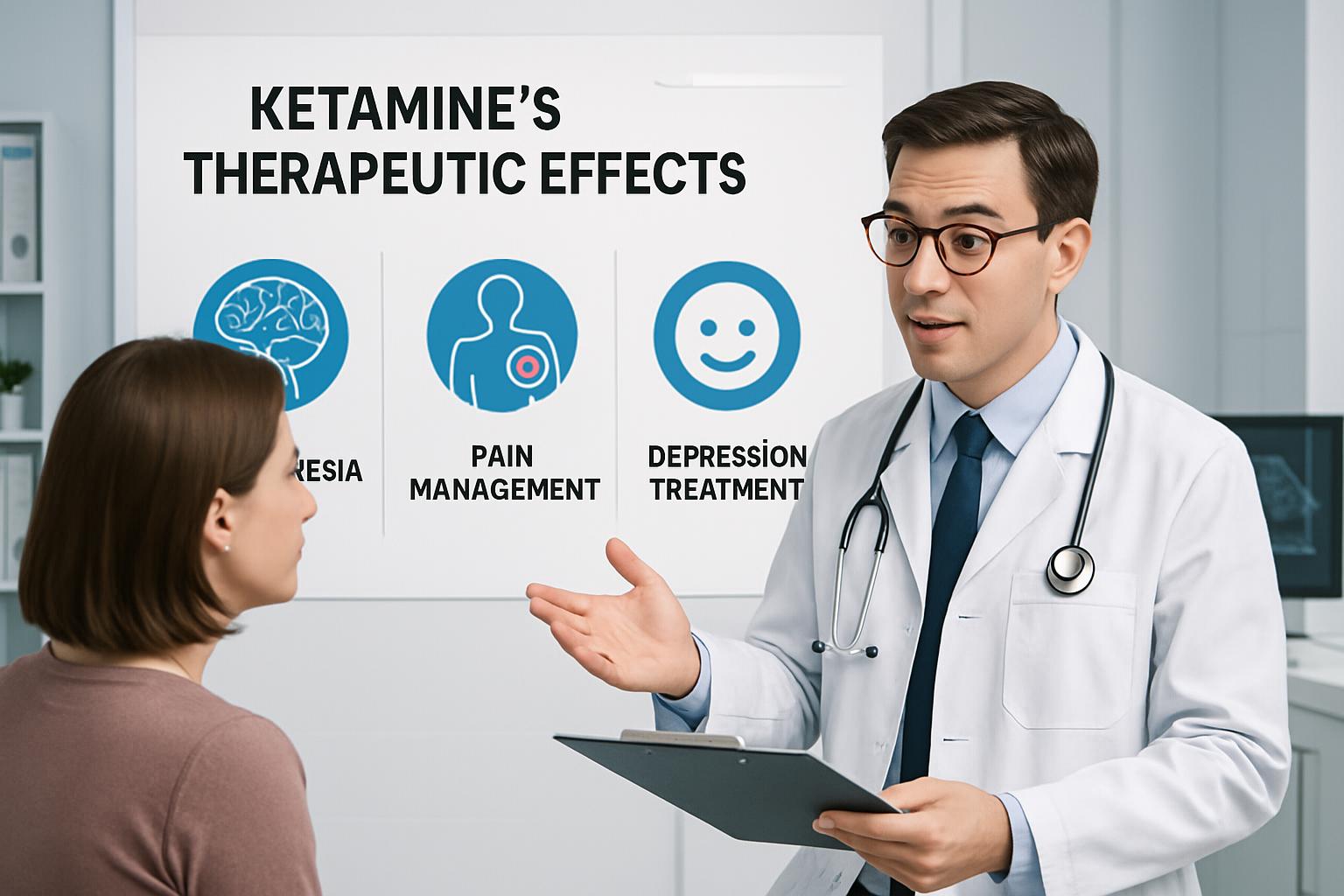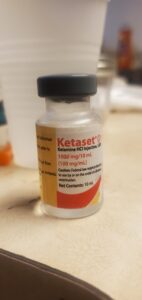If you’ve noticed your OCD symptoms intensify during stressful periods—whether it’s a demanding work deadline, a relationship conflict, or even just poor sleep—you’re not imagining things. The connection between stress and OCD isn’t just psychological; it’s deeply rooted in your brain’s stress response system. Research confirms that OCD patients experience significantly elevated cortisol levels compared to individuals without the disorder, and these elevated stress hormones directly correlate with worsening obsessive symptoms (Morgado et al., 2013). Understanding this biological connection can help you recognize what’s happening in your brain during symptom flares and take steps to manage both the stress and the OCD.
The HPA Axis: Your Brain’s Stress Control Center
At the heart of the stress-OCD connection is your hypothalamic-pituitary-adrenal (HPA) axis—the complex system that regulates your body’s stress response. When you encounter a stressor, your HPA axis releases cortisol, often called the “stress hormone.” For most people, cortisol levels rise during stress and then return to baseline once the stressor passes. But for individuals with OCD, this system operates differently.
A comprehensive meta-analysis examining 18 studies found that people with OCD consistently show significantly higher cortisol levels than those without the disorder (Marques et al., 2019). This isn’t just during moments of acute stress—baseline cortisol levels are elevated, suggesting the HPA axis is in a state of chronic hyperactivity. Think of it like a car alarm that’s become overly sensitive, going off more easily and staying on longer than it should.
What makes this particularly relevant for OCD is the bidirectional relationship at play. Stress triggers obsessive thoughts, but obsessive thoughts themselves also function as internal stressors. Your brain perceives intrusive obsessions as threats, which activates the same stress response system, creating a self-perpetuating cycle. The more you experience obsessions, the more cortisol your body produces, which in turn makes you more vulnerable to additional obsessions.
Why Obsessions Respond More Than Compulsions
Here’s something that may surprise you: research shows that stress primarily affects the obsessive component of OCD, not the compulsive behaviors. In a study measuring both perceived stress and OCD severity, researchers found that stress levels correlated positively with obsessive symptoms but showed no significant relationship with compulsive symptoms (Morgado et al., 2013).
This distinction matters because it helps explain why stress doesn’t uniformly worsen all aspects of OCD. Your intrusive thoughts—those unwanted images, urges, or worries that feel impossible to control—become more frequent and intense under stress. The compulsions you perform in response may remain relatively stable, but you’re performing them in response to a higher volume of distressing obsessions.
From a practical standpoint, this means that stress management strategies targeting the obsessive component may be particularly effective. While compulsions are learned behavioral responses that require specific therapeutic interventions like exposure and response prevention, the obsessive thoughts themselves respond more directly to regulation of your stress response system.
The Sleep, Circadian Rhythm, and Stress Connection
If your OCD symptoms tend to worsen in the evening or after poor sleep, there’s a neurobiological explanation. Research on biological rhythms in OCD has revealed that individuals with the disorder often experience delayed sleep-wake cycles and disrupted circadian rhythms (Robillard & Boafo, 2016). This creates a problematic cascade: delayed sleep patterns lead to increased homeostatic sleep pressure, which heightens your cortisol sensitivity to stress, particularly in the evening hours.
This is why many people with OCD report their symptoms feeling most intense at night. Your brain’s stress response system is already more reactive due to sleep disruption, and evening is when cortisol sensitivity peaks if you have a delayed sleep pattern. The urge to complete extended evening rituals can significantly delay bedtime, creating a vicious cycle that worsens both sleep and OCD symptoms.
The relationship between sleep, stress hormones, and OCD extends to melatonin as well. Studies show OCD patients have lower levels and reduced circadian rhythm amplitude of melatonin compared to healthy controls, with melatonin secretion peaking about two hours later than normal (Robillard & Boafo, 2016). Since melatonin plays a role in regulating the sleep-wake cycle and has anti-inflammatory properties, these disruptions compound the stress-related challenges.
What This Means for You: Three Practical Steps
Understanding the neuroscience behind stress-induced OCD flares empowers you to take specific action. Here are three evidence-informed strategies you can implement this week:
- Prioritize Sleep Schedule Consistency
Given the connection between circadian disruption and stress sensitivity, maintaining a consistent sleep schedule is crucial. Try to go to bed and wake up at the same time every day, even on weekends. If evening rituals are delaying your bedtime, work with a therapist to gradually reduce these or move them earlier in your routine. Exposure to bright light in the morning and reducing screen time in the evening can help reset your circadian rhythm.
- Identify Your Stress-OCD Patterns
Keep a brief daily log noting your stress level (1-10 scale), major stressors, and OCD symptom intensity. Over two weeks, you’ll likely see clear patterns emerge. This awareness helps you anticipate when symptoms may worsen and implement stress management proactively rather than reactively. You might notice that certain types of stress (interpersonal conflict vs. work pressure) affect your OCD differently, allowing you to develop targeted coping strategies.
- Incorporate Stress Regulation Practices
Since elevated cortisol directly correlates with obsessive symptoms, practices that regulate your stress response can provide meaningful relief. This might include progressive muscle relaxation, deep breathing exercises, moderate exercise, or mindfulness meditation. The goal isn’t to eliminate all stress—which isn’t possible—but to prevent your HPA axis from remaining in a chronically hyperactivated state.
When Standard Approaches Aren’t Enough
For many individuals in Salt Lake City, Blanding, and throughout Utah, traditional OCD treatments provide significant relief. However, we also work with people every day who are suffering from complicated and treatment-resistant OCD that hasn’t responded adequately to conventional approaches. At Mindful Infusions, we focus exclusively on ketamine-based therapy for individuals who have been given up on by other healthcare providers.
Ketamine works differently than traditional medications by targeting the glutamate system rather than serotonin. This rapid-acting approach can provide relief from obsessive thoughts within hours rather than the weeks or months typically required by SSRIs. When combined with psychotherapy—what we call Ketamine-Assisted Psychotherapy (KAP)—many patients experience not just symptom reduction but genuine insights into their OCD patterns.
Our team includes board-certified specialists with extensive training in both ketamine administration and mental health treatment. Ibrahim, our Licensed Clinical Social Worker certified through the Psychedelic Research and Training Institute (PRATI), specializes in helping patients engage in healing beyond anxiety, depression, and trauma using KAP. His role is to walk with you through the process while you learn to listen to the wisdom and strength you possess within.
It’s important to understand that treatment outcomes vary by individual, and ketamine isn’t appropriate for everyone. We take time to educate each person about the treatment process and answer questions, because this is your journey to recovery. If stress-triggered symptom flares are significantly impacting your life despite your best efforts with traditional treatments, exploring ketamine therapy may offer a new avenue for relief.
Understanding Doesn’t Mean Blame
Learning about the biological underpinnings of stress-related OCD symptoms serves a specific purpose: it helps you understand what’s happening in your brain so you can respond effectively. This knowledge isn’t about self-blame or feeling broken. Your HPA axis dysregulation and altered stress response aren’t character flaws—they’re treatable aspects of a neurobiological condition.
The stress-OCD connection also doesn’t mean you need to eliminate all stress from your life, which would be impossible and undesirable. Stress is a normal part of human experience. What matters is understanding how your particular nervous system responds to stress and developing strategies that work for your unique situation. Some stress management approaches will resonate with you while others won’t, and that’s okay.
If you’re experiencing persistent OCD symptoms that worsen under stress and haven’t found adequate relief through traditional treatments, you deserve options. Results vary by individual, but many patients find that addressing the underlying neurotransmitter imbalances with ketamine therapy, combined with learning new ways to relate to obsessive thoughts through psychotherapy, offers meaningful improvement.
We’re committed to providing quality, collaborative treatment for each person we meet. If you’re interested in learning more about how ketamine therapy might help with treatment-resistant OCD, we offer free phone consultations to discuss your specific situation and determine if this approach is right for you.
References
Marques, L., LeBlanc, N. J., Weingarden, H. M., Timpano, K. R., Jenike, M., & Wilhelm, S. (2019). Relationship between obsessive compulsive disorder and cortisol: Systematic review and meta-analysis. Psychiatry Research, 279, 76-83. https://www.sciencedirect.com/science/article/abs/pii/S0924977X19308752
Morgado, P., Sousa, N., & Cerqueira, J. J. (2013). Perceived Stress in Obsessive-Compulsive Disorder is Related with Obsessive but Not Compulsive Symptoms. Frontiers in Psychiatry, 4(21). https://www.frontiersin.org/journals/psychiatry/articles/10.3389/fpsyt.2013.00021/full
Robillard, R., & Boafo, A. (2016). Etiopathology and neurobiology of obsessive-compulsive disorder: focus on biological rhythms and chronotherapy. Chronobiology and Therapy, 6, 1-14. https://www.dovepress.com/etiopathology-and-neurobiology-of-obsessive-compulsive-disorder-focus–peer-reviewed-fulltext-article-CPT


